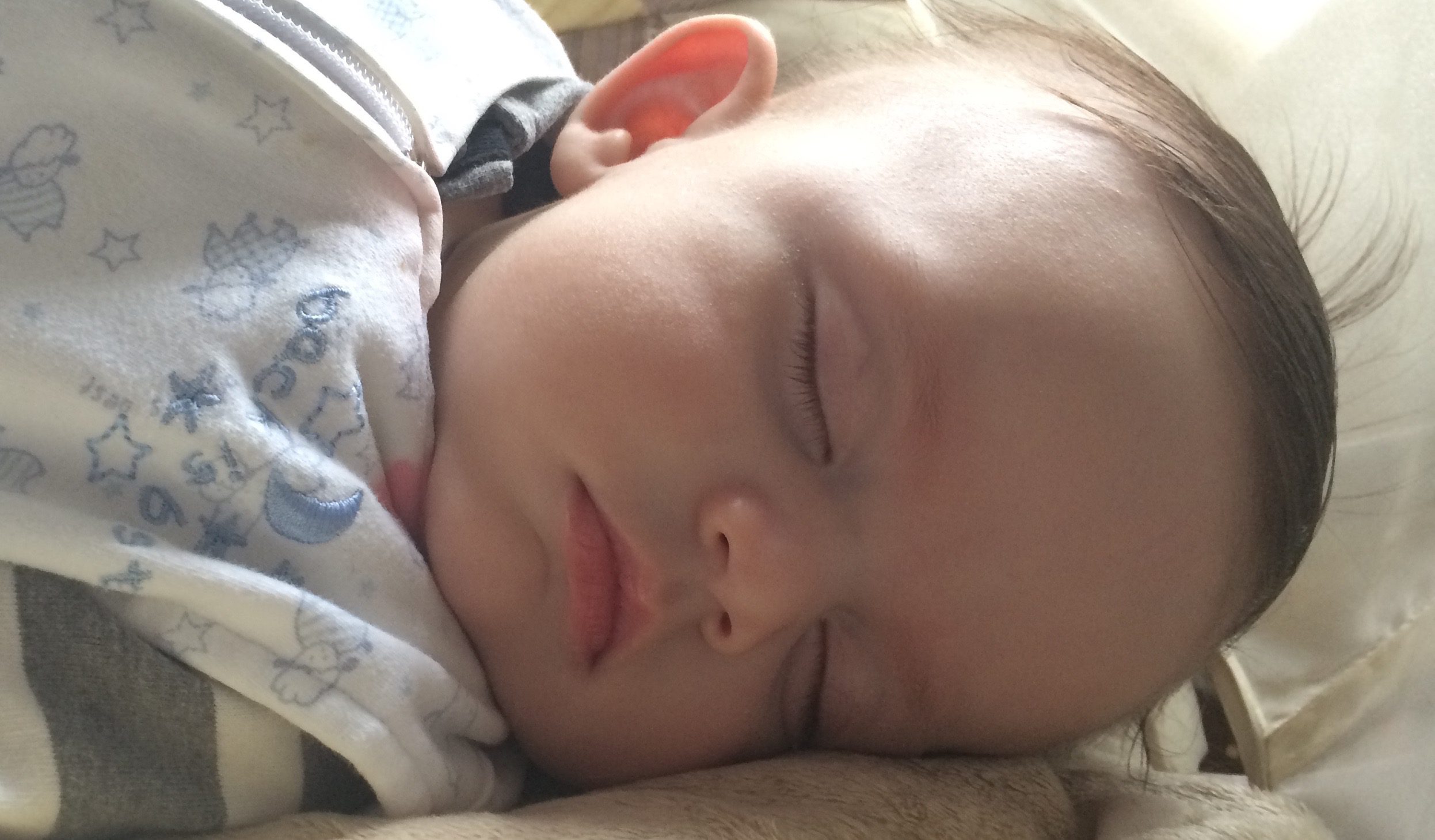In spite of your best efforts, or possibly because you elected not to sleep train your infant earlier in life, you may find that, around 7-8 months old, your baby is suddenly waking you several times per night to feed or be held. This happens for several reasons, the most prominent one being that your child is now moving into his or her adult sleep pattern. Adults often don’t realize that they wake up several times per night and usually roll over and go back to sleep. If your child requires your help to fall asleep at the beginning of the night, at this age, they will require you to repeat this activity each and every time they awaken in the middle of the night.
Therefore, how your child falls asleep becomes of primary importance. As stated in my prior blog, this is best done around four months of age, but can be done later with a little more effort and ‘pain’. There are several causes of a recurrence of poor sleep after your infant has been sleeping through the night: never teaching them to fall asleep without you or a sleep aide like music or white noise, cuddling them a lot during an illness, and going on vacation where all rules go out the window. I am by no means suggesting that you shouldn’t attend to your child when they are ill or when you are on vacation, but it would be best to stop bad habits as quickly as possible to avoid the problems we are about to discuss. Many parents also think their child is still hungry at night, but I can assure you that if your baby is eating three solid meals per day plus breast milk or formula, they should have no trouble making it 10 hours at night by the time they are seven months old.
So now you have an eight month old who is waking up 3-4 times per night to feed or be held and you want to fix it. This part is where the pain comes in. It will require you to let your infant cry to sleep at bedtime and when they awaken during the night. You can do this slowly by going in there very frequently to assure the baby that things are fine, or you can do this quickly by just letting your infant cry for what will feel like forever. By nine months, most babies will cry for about 1-2 hours on the first night before bed AND each time they wake up.
If you have been in the habit of feeding your infant overnight, then before you sleep train, cut their night feedings in half. That way they will eat more during the day and you won’t have to worry that they are starving (which I can assure you they aren’t). After that, I usually advise parents to go in to their crying infant about every 30 minutes to assure them that everything is fine and that it is time to sleep. Try not to pick them up or go in if they are only whimpering; you just start the whole process over again when you do that.
Each night of sleep training results in less crying time and most infants are completely trained in 3-4 days. I often tell parents to call me if it isn’t working; I rarely get a call because it either worked or they gave in and rocked their baby to sleep ☺.
Please understand that if you do not train your child to sleep it will be years before this problem goes away, often six or seven. Many children end up in their parents’ bed after awhile because the parents can’t tolerate the frequent waking; then no one gets a good night’s sleep for a very long time.
When you are feeling guilty about letting your child cry, remind yourself that it is for their own good. Studies have shown that children who wake a lot during the night do not learn as well as their healthy-sleeping counterparts. The longer you wait to decide to train, the harder it gets. Children have a lot of staying power which increases with age. The worst thing you can do is let them cry for 90 minutes and then give up; they remember that and just cry longer and louder next time until you cave again.
My next blog will discuss sleep problems in the older child during the time of nightmares and fears. Stay tuned.
Written by: Dr. Virginia DePaul

